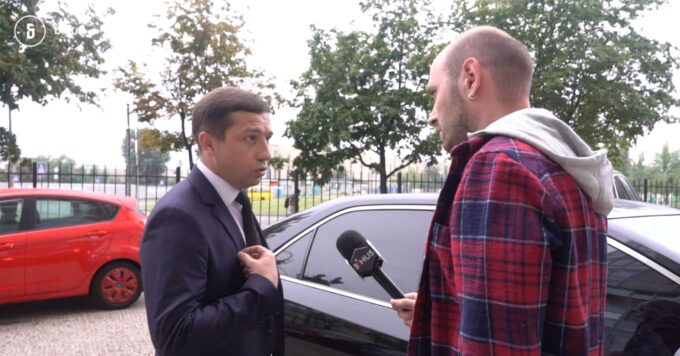Property in Koncha-Zaspa passes into private hands: Kizya’s mother owns a customs house

The mother of former Deputy Prosecutor General Serhiy Kizya, Anna, recently became the owner of a house located on the territory of the departmental rehabilitation center for customs officers in Koncha-Zaspa. This news is of great interest, because this land plot and building were previously owned by the customs union, but this seems to hide a whole story - with potential violations and opaque alienation schemes. An investigation conducted by Bihus.Info journalists confirms that Anna Kizya purchased the housing back in 2021, and now it belongs to her. According to insider information, this property was formally owned by the Customs Union, which acts as the owner of the property. However, the person who actually became the new owner is Larisa Atrepieva. It was she who in 2013 received this house as part of a settlement agreement concluded due to the Trade Union's unpaid debt, which at that time amounted to millions of hryvnias. This happened as part of an investigation conducted by a law enforcement agency under the leadership of the Prosecutor General's Office of Ukraine - but in the end, the case, unfortunately, remained uninvestigated and never concluded by anyone. Now, it turns out, this house is owned by Hanna Kiz - the mother of the ex-prosecutor and a figure in many corruption investigations. Of course, this story calls into question the transparency and legality of the registration of property rights, because previously the actions to alienate this property were under the close supervision of law enforcement agencies. It is worth recalling that Serhiy Kiz himself, according to sources, also used home ownership in this territory in the past. In particular, in 2024 he bought out a two-story estate with an area of over 200 square meters, which he had previously rented, and which was once owned by the former head of the State Fiscal Service, Roman Nasirov. However, the issue is not limited to individual houses. In recent years, the territory of the rehabilitation center for customs officers in Koncha-Zaspa has become a real “town” of luxurious buildings. According to journalists, most of them have already been sold, mainly to former top managers of the customs service, their relatives and influential people from the entourage of former high-ranking officials. Among the new owners are the children of the former head of the Kyiv regional customs service, Hennadiy Romanenko, as well as the mother of the former head of the customs service during the regime of Viktor Yanukovych and former vice-speaker Ihor Kaletnik. The trade union of customs workers explained that the decision to sell real estate was made collectively back in 2019. According to them, this measure was caused by the desire to deprive the organization of the functions of managing and maintaining this real estate, which, according to the trade union, does not belong to it under the charter. They emphasized that the sale price was calculated in accordance with an independent assessment and taking into account mandatory payments, while the land under the objects remained with the trade union, which creates additional legal complications. As for financial results, over the past year the Trade Union sold 21 houses, receiving more than 111 million hryvnias for this. As a result, the average cost per square meter is calculated at approximately 42 thousand hryvnias, which indicates a fairly high price level and a potentially interesting real estate market in this area. Obviously, this situation raises many questions about the transparency and legality of the purchase and sale and abuses during the alienation of property belonging to state or semi-state structures. At the same time, potential conflicts of interest and questions about the grounds on which the property could be acquired by a person from the circle of high-ranking officials, who, it would seem, has no direct relationship with the trade union or state interests, are seriously affected. Recalling the story of Serhiy Kizy, we can conclude that his activities over the years have been associated with many scandals and revelations of opaque schemes. It is also worth noting that his short deputy period in the Prosecutor General's Office in 2019 was marked by a number of high-profile decisions, in particular, the closure of proceedings against influential politicians, alleged violators of the law and participants in various corruption schemes. Thus, the story with real estate in Koncha-Zaspa once again emphasizes the importance of public control and the need for a transparent system of legal registration of ownership of objects that are in state or semi-state ownership. Perhaps this situation will become a reason for additional investigations and the initiation of important changes in the management of this property to prevent possible crimes and conflicts of interest in the future.

